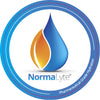Having POTS: Fear of Fainting


Living with postural orthostatic tachycardia syndrome (POTS) is a curveball in life that may make you feel helpless. There are a lot of symptoms of POTS that can make living life to the fullest more difficult. One of the symptoms some (but not all) people with POTS have is fainting.
Not everyone who has POTS will experience fainting, or syncope, a temporary loss of consciousness. There’s a “lucky few'' who get to experience this. The first few times it happens to you, it can be not only confusing but alarming. Have you passed out with no explanation and suspect POTS may have been the cause? Read on.
Why do people with POTS faint?
POTS is a form of dysautonomia. DYS meaning dysfunction, auto meaning the automatic functions within a person's body. When the parts of your body aren’t working appropriately there is a dysfunction with your body's automatic systems.
When you have POTS, you have problems with vasoconstriction. Vasoconstriction is the process in which the muscles constrict your blood flow. It’s an important part of our biology as it helps blood get to the necessary areas of our body. When you have POTS, this function isn’t working properly causing blood pooling in your extremities. One study explains, “The findings suggest that pooling in POTS is due to blunted arterial vasoconstriction, which produces passive redistribution of blood within peripheral venous capacitance beds.” Basically, it means that your blood isn’t moving the way it should because your muscles aren’t constricting your arteries and veins the way it needs in order to get blood to your brain.
Overcoming Your Fear of Fainting
Before you lose consciousness there are clues. Pre-syncope is the scientific name given to that feeling right before you lose consciousness. Some people describe it as a “gray out” where sounds start to become muffled or your vision starts to black out. Some describe it as a feeling of nausea followed by dizziness. Some say it is heart palpitations, sweating, and suddenly feeling weak. Every individual will experience it slightly differently.
It can be really scary when you lose consciousness. Having a fear of fainting is only natural as it can put you in dangerous situations. The best way to help yourself is to listen to your body. Knowing the way your body reacts will help you conquer your fear of fainting.
What to Do if You Think You’re About to Faint
Some people are able to avoid fainting by preventing it when symptoms hit. Others are not able to prevent it, but they can take action to prevent any serious injury.
To prevent fainting, try some of the following:
- Take deep breaths
- Eat something
- Drink an electrolyte
- Take deep breaths
If you can’t prevent fainting, use these tactics to prevent injury:
- Get to the ground - sit or lay down on the floor
- Get away from any objects
- Tell someone, if possible
How to Help Someone Who Has Fainted
With fainting, it’s good to let others know what to expect and how to handle episodes if they occur. Let your family and friends around you know what is happening to you so that they know how to jump into action, if needed.
- Stay calm, episodes usually last only a minute at most
- If possible, lay them on their back with legs propped up
- Call 911 only if the person has severely injured themselves, have been out for more than a minute, isn’t breathing, or are jerking from seizure







Leave a comment